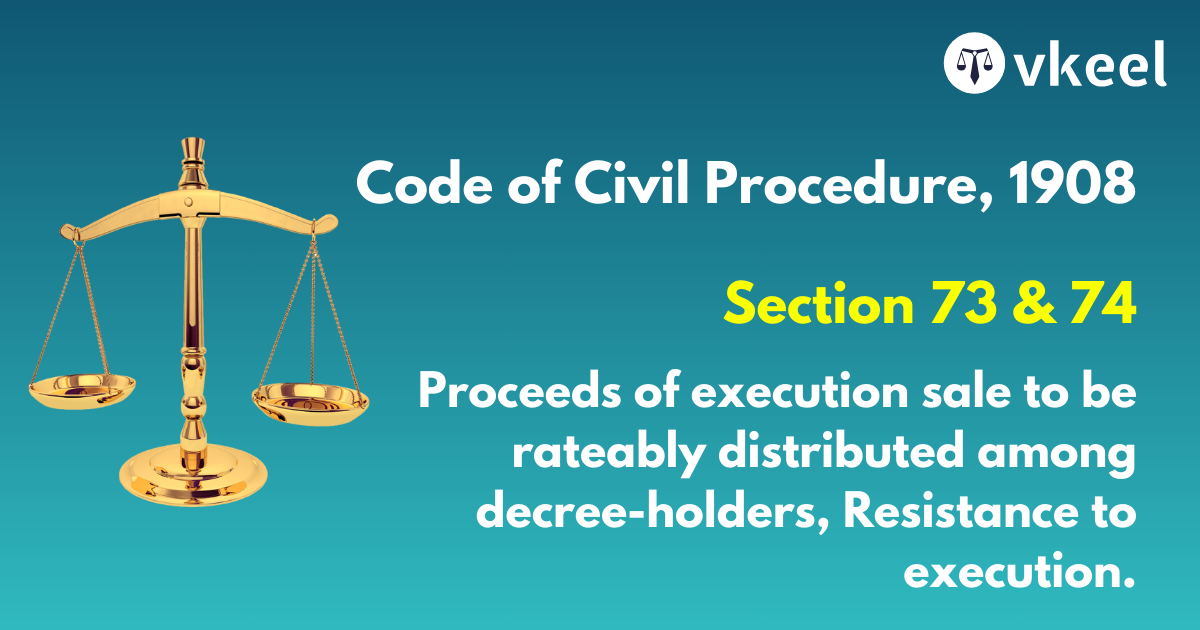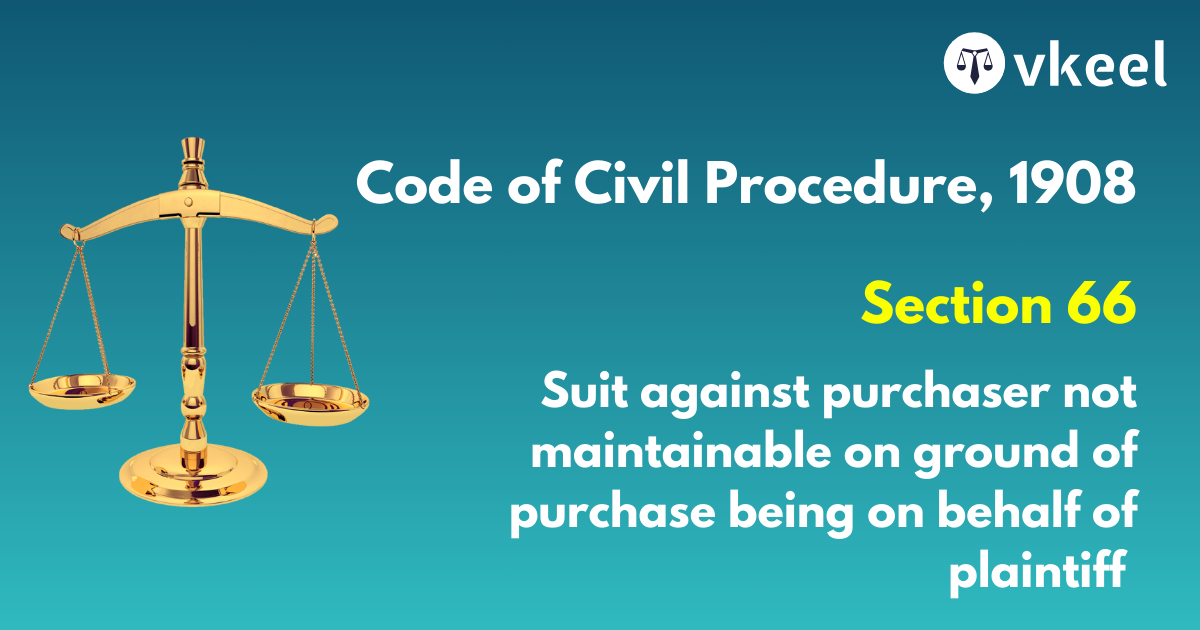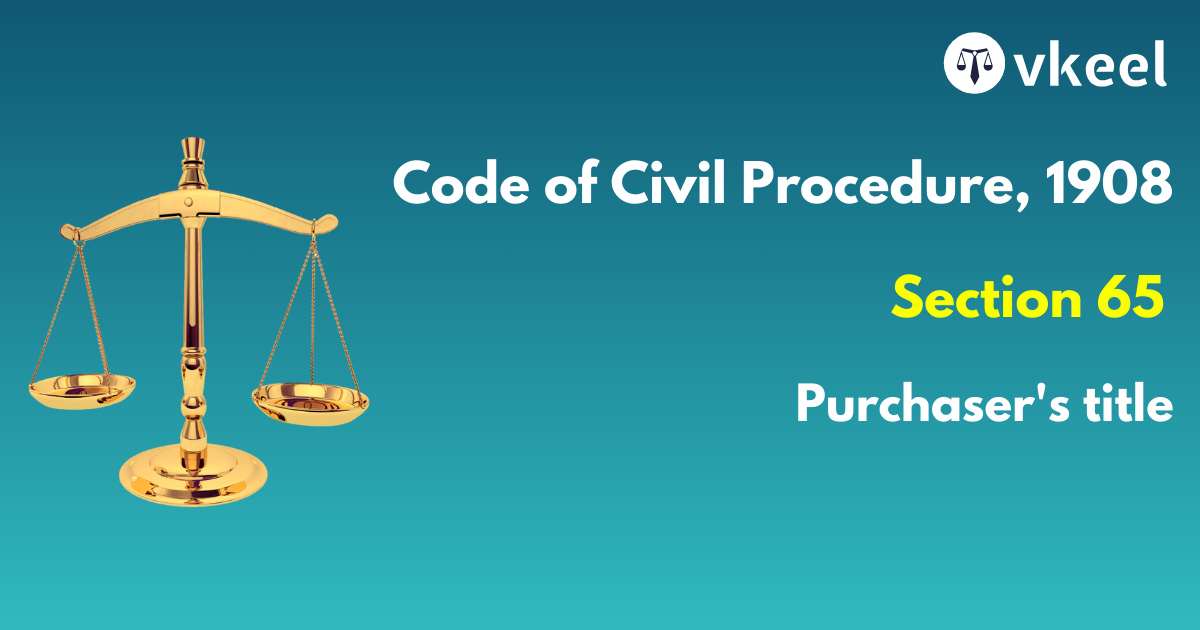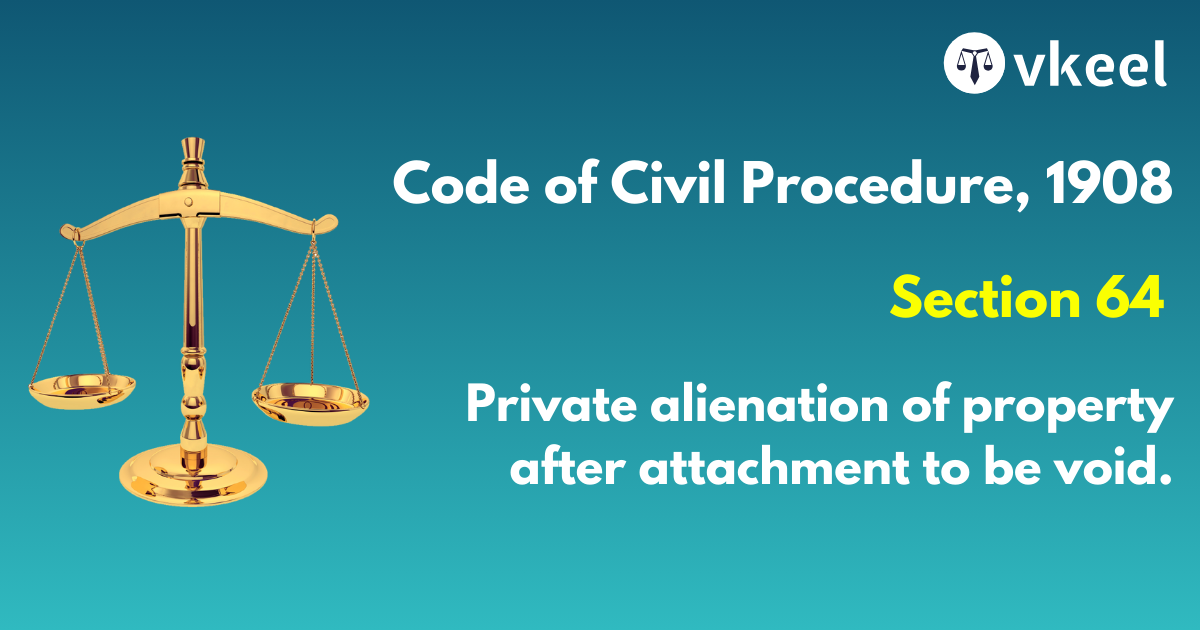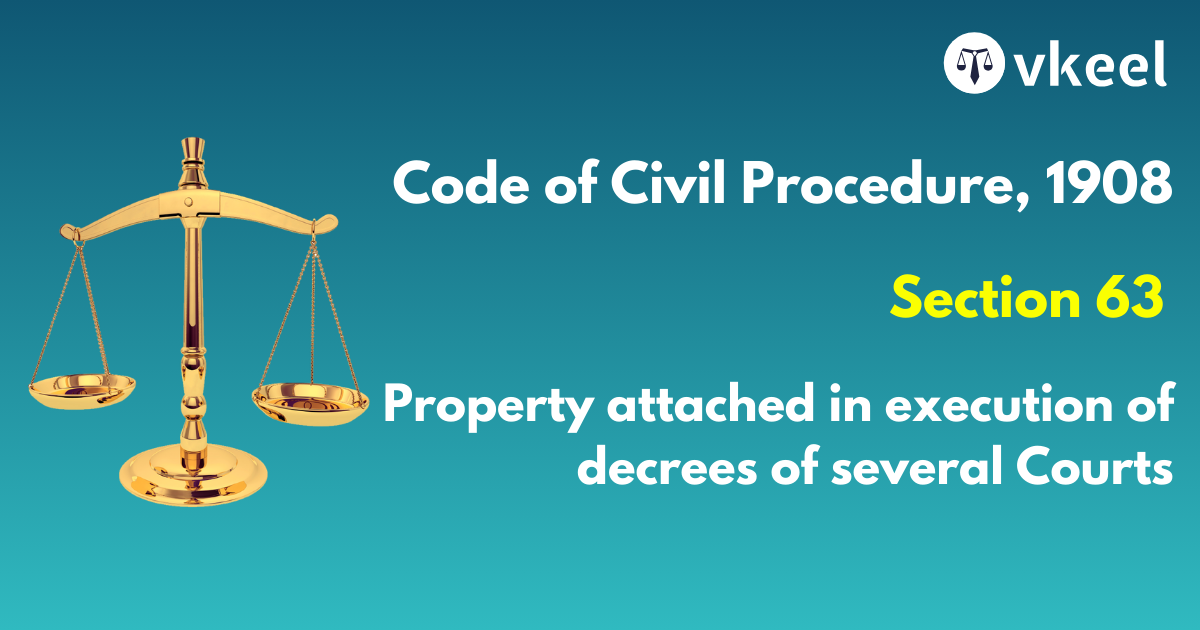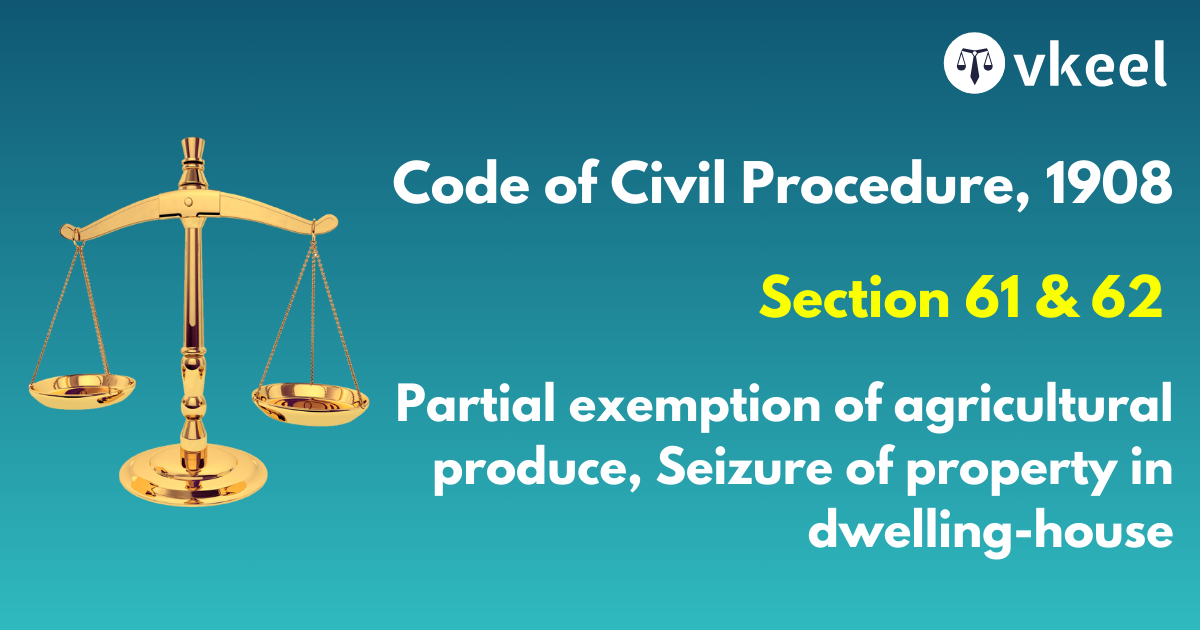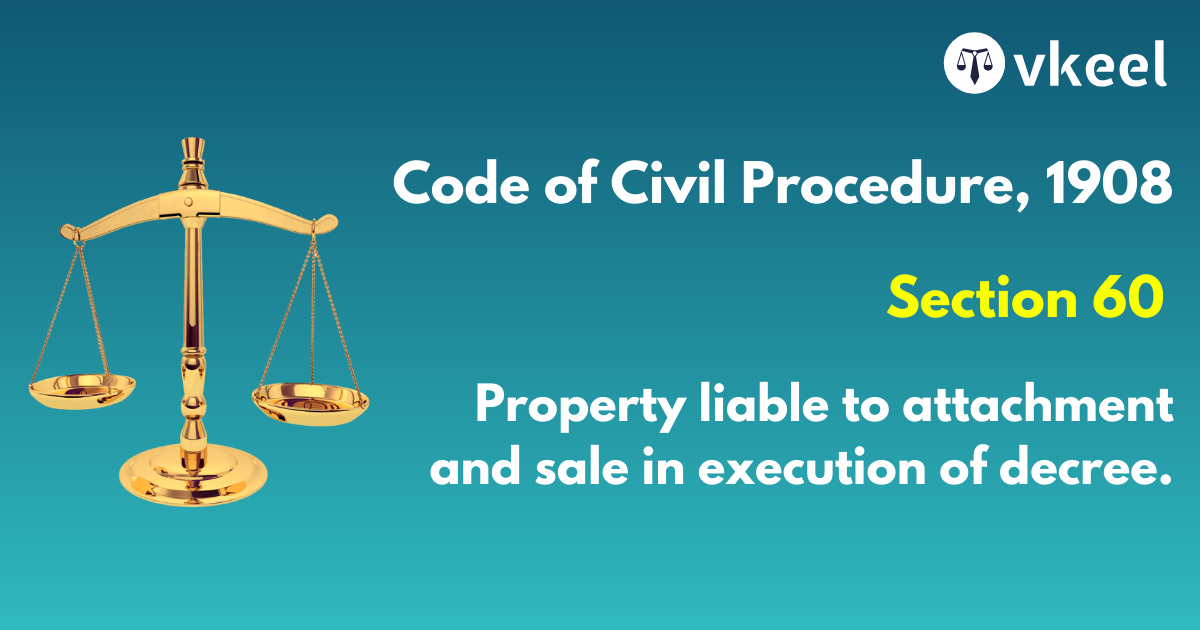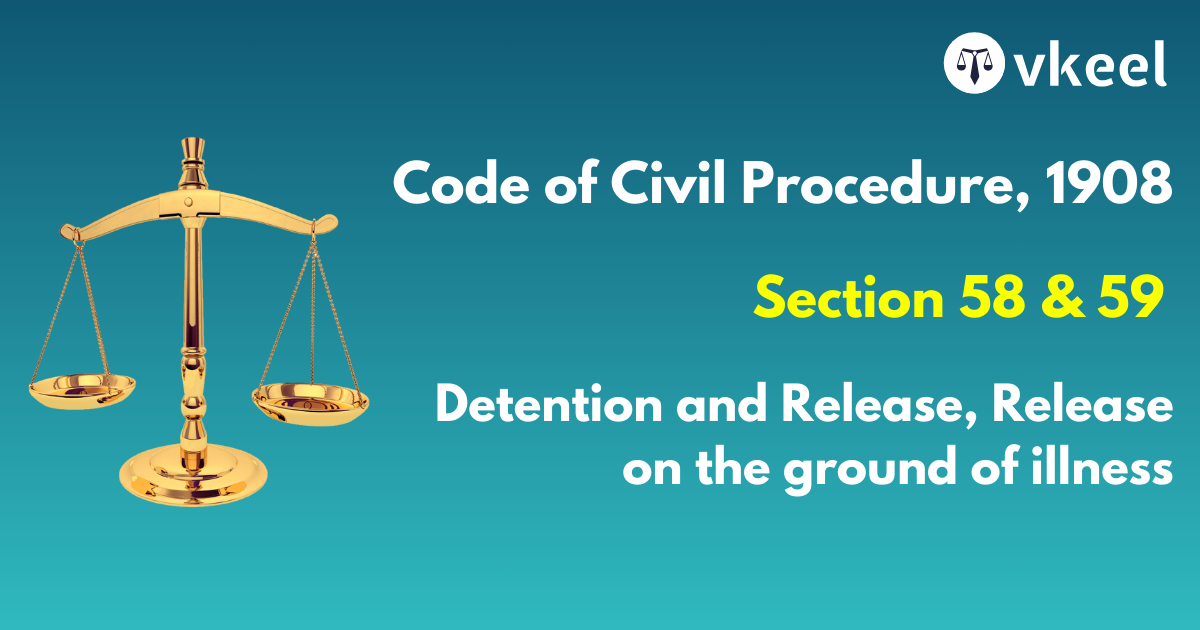Section 43 and 44 of the Code of Civil Procedure, 1908
By Joy Puri
Introduction
The section 43 of the Code of the Civil Procedure holds a significant position in order to ordain about the execution of the decrees and their jurisdiction which is not circumscribed within the power of the code.
In the same way as to the aforesaid, the section 44 of the Code of Civil Procedure opines regarding the execution of the decrees by the revenue courts and their jurisdiction which is not circumscribed within the power of the code.
Section 43 of the Code of Civil Procedure,1908
43. Execution of decrees passed by Civil Courts in places to which this Code does not extend.-
Any decree passed by any Civil Court established in any part of India to which the provisions of this Code do not extend, or by any Court established or continued by the authority of the Central Government outside India, may, if it cannot be executed within the jurisdiction of the Court by which it was passed, be executed in the manner herein provided within the jurisdiction of any Court in the territories to which this Code extends.
44. Execution of decrees passed by Revenue Courts in places to which this Code does not extend.
44. Execution of decrees passed by Revenue Courts in places to which this Code does not extend.– The State Government may, by notification in the Official Gazette, declare that the decrees of any Revenue Court in any part of India to which the provisions of this Code do not extend, or any class of such decrees, may be executed in the State as if they had been passed by Courts in that State.
Landmark Case Laws
Moloji Vs Shankar, 1962
An ex parte decree passed by the Gwalior Court on 18-11-48 was transferred to Allahabad on 14-9-51 for execution. The decree is a nullity. After the CPC Amendment Act 2 or 1951 section 43 applies to two kinds of decrees: (1) decrees passed by any court established in any part of India to which the CPC extends; (ii) decrees passed by any court established or continued by the Central Government outside India
Kishendas Vs IC Bank Ltd, 1958
A reading of sections 43-55 would show that Indian courts have power to execute (1) the decrees of those Indian courts to which the Code does not apply, e.g., the scheduled districts; (2) the decrees of Civil Courts outside India established by the authority of the Central Government; (3) the decrees of the revenue courts in any part of India to which the Code does not apply and (4) the decrees of Indian Courts in the States to which the State Government has notified that section 45 would apply
Shah Kantilal Vs Dominion, 1954
This section was not intended to apply to foreign and sovereign territories such as those of former Indian States where the possibility of application of CP Code could never be contemplated at all.
Sheik Ali Vs Sk Md, 1967
Reciprocity applies to enforceable decrees in the country of their origin. If the judgment is barred by limitation there it cannot be enforced here even though a larger period of limitation is available. There is no period of limitation for the filing of a certified copy. The right to apply for execution accrues on and from the date of filing under section 44A(1) and the residuary article of the Limitation Act applies
Lakhpat Vs Atma, 1971
Step for execution of a decree of a foreign court has to be taken within 3 years from the date of passing such decree
Dinesh Vidyog Ltd Vs Oriental Gas Co Ltd, 2019
There is no dispute that the English High Court, Chancery Division which passed the decree in question is a ‘Superior Court’ within the meaning of section 44A. Section 2(4) of the Code defines ‘district’ as the local limits of the jurisdiction of a principal Civil Court of Original Jurisdiction and includes the local limits of the Ordinary Original Civil Jurisdiction of a High Court. Hence, an application for execution of a decree of the English High Court is maintainable in the Ordinary Original Civil Jurisdiction of the Calcutta High Court.
Ramdhamani India Ltd Vs Imperial Garments Ltd, 2005
The statute has not prescribed the nature and the form of certificate which shall accompany the certified copy of the decree. Certificate in any form, e.g., an information slip issued by the Court passing the decree to show that the decree was not put into execution, is sufficient certificate for the purpose of section 44A(2).
Bank of Baroda Vs Kotak Mahindra Bank, 2020
Limitation would start running from the date the decree was passed in the foreign court. In case the decree-holder does not take any steps to execute the decree in the cause country (i.e., where the suit was agitated), it cannot come to the forum country and plead a new cause of action or plead that the limitation of the forum country should apply.
Conclusion
In conclusion to Sections 43 and 44 of the Code of Civil Procedure,1908 they act as a tool or an instrument to help manage how foreign judgments are accepted and enforced in India.
While they encourage cooperation between countries, they ensure that foreign decisions do not go against the fundamental law of the land or fairness in the country.
Disclaimer:
The information provided in the article is for general informational purposes only, and is not intended to constitute legal advice or to be relied upon as a substitute for legal advice. Furthermore, any information contained in the article is not guaranteed to be current, complete or accurate. If you require legal advice or representation, you should contact an attorney or law firm directly. We are not responsible for any damages resulting from any reliance on the content of this website.



